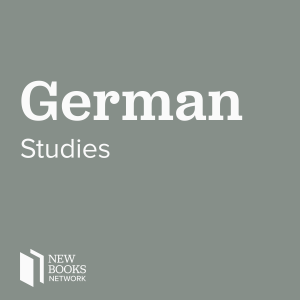
Stephen Brockmann, “The Writers’ State: Constructing East German Literature, 1945-1959” (Camden House, 2015)
 2017-01-27
2017-01-27
Stephen Brockmann’s The Writers’ State: Constructing East German Literature, 1945-1959 (Camden House, 2015) introduces readers to a specific atmosphere–political, cultural, and historical–that accompanied the emergence of East German literature from 1945-1959. Covering almost fifteen years, the research presents insightful observations of the literary process that happened to be intricately connected with the political turbulence.
As Stephen Brockmann puts it, literature in East Germany was never about “just” literature: “It was always also about collective identity and the path toward a better future–however imaginary and illusive that future may be (7).” In the post-war Germany that happened to go through a division process, literature, culture affairs in general, appeared to be involved in the state making and identity construction. In the GDR in particular, literature was employed as a tool to re-direct national identity and memory. In this process, politicians and functionaries were shaping the cultural affairs through a close collaboration with writers and artists. It would be unfair to say that the officials were particularly eager to encourage artists to participate in the construction of a new state–the GDR-0that was, in fact, based on the historical and cultural past of Germany. In post-Nazi Germany, writers were taking an initiative to come to terms with the Nazi past, offering ways to move forward, putting the tragic past behind, and produce new history. While engaging with the memory of the past, writers were responding to the contemporary political developments, shaping the understanding of the present and outlining routes for the future.
Brockmann narrates a detailed account of the cultural and political developments, successfully illustrating the intersections of the political and the cultural. Alongside the analyses of the exemplary works of East German writers (Anna Seghers, Bertolt Brecht, etc.), Brockmann presents a vast collection of historical data confirming the collaboration of the politicians and artists in the matters of state and nation construction. Particular attention is given to the official organizations, which functioned to secure a certain development of the cultural affairs and that were extensively supported and governed by the functionaries.
Brockmann’s research also includes an insightful investigation of the cooperation of GDR and the USSR, particular in terms of constructing an ideological foundation for the East Germany sector. While extensively incorporating German literary traditions into their endeavors to construct new literature, East German writers were also engaging with the influences exercised by Soviet propaganda and Soviet literature.
The Writers’ State is an attempt to re-evaluate the 1940s and the 1950s in the history of German culture and literature. Brockmann challenges a cliche according to which this time period is rather uneventful in terms of cultural developments and re-discovers intriguing nuances of the East German literary landscape.
Stephen Brockmann is Professor of German in the Department of Modern Languages at Carnegie Mellon University (Pittsburgh, PA). Dr. Brockmann also has courtesy appointments in the departments of English and History.
Learn more about your ad choices. Visit megaphone.fm/adchoices
Support our show by becoming a premium member! https://newbooksnetwork.supportingcast.fm/german-studies
More Episodes
Create your
podcast in
minutes
- Full-featured podcast site
- Unlimited storage and bandwidth
- Comprehensive podcast stats
- Distribute to Apple Podcasts, Spotify, and more
- Make money with your podcast
It is Free
- Privacy Policy
- Cookie Policy
- Terms of Use
- Consent Preferences
- Copyright © 2015-2024 Podbean.com






